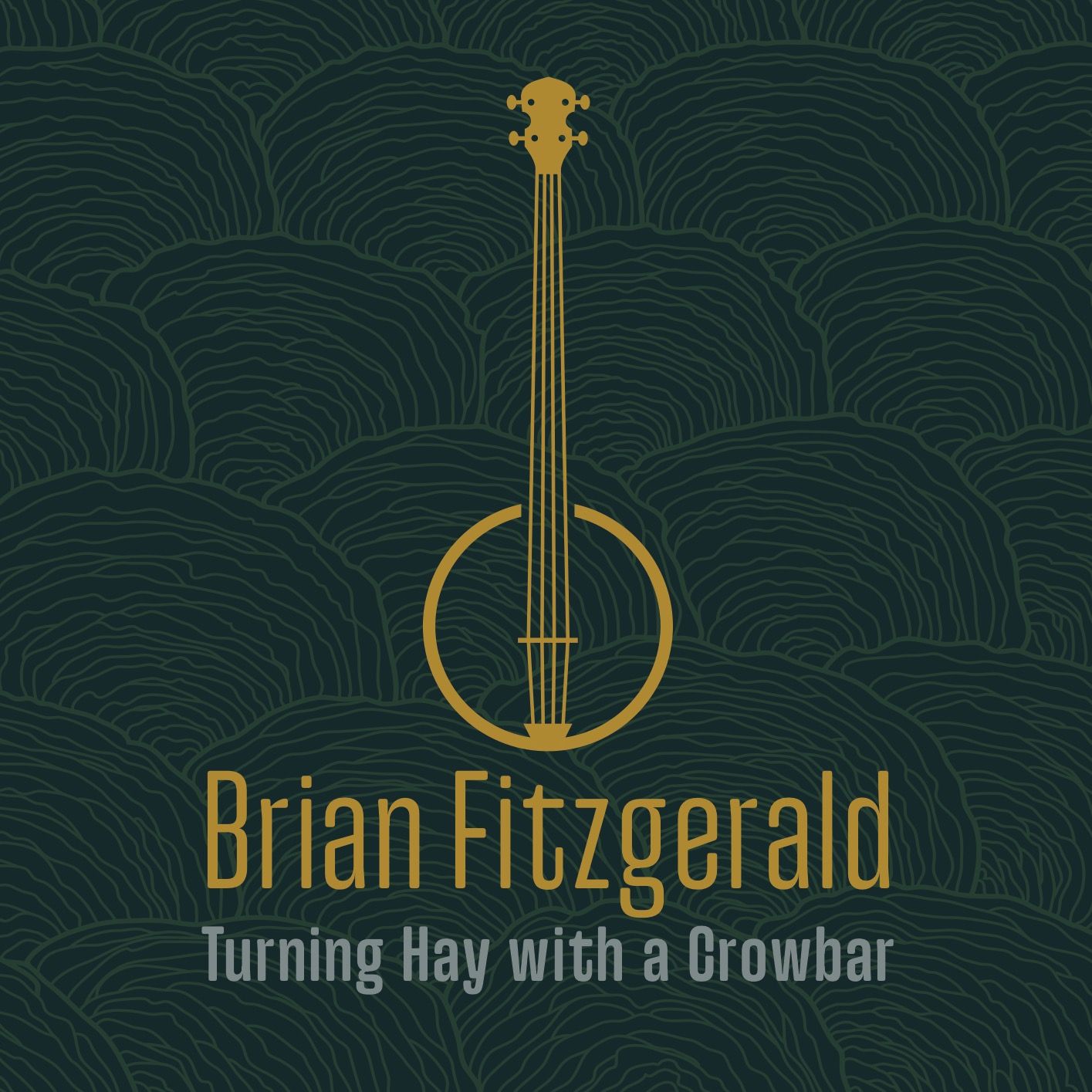Big news from the world of piping with Na Píobairí Uilleann’s announcement of €11.3 million in capital funding for its planned “Sound of Ireland Center.” Set for construction at 16 Henrietta St. in Dublin and slated to open in 2027, the new facility will celebrate uilleann piping with an international visitor centre, theater performance space, and instrument making training facility. This is great news that will warm the hearts of the uilleann piping community, for more info, visit NPU’s website.
In the media player this week is banjo driver Brian Fitzgerald’s new album “Turning Hay with a Crowbar.” It’s an album that I got a few weeks ago and one I’ve been excited to have a close listen to, particularly because of how positively the Irish banjo community has received it. It’s very easy to hear why ––Fitzgerald’s playing is exceedingly sweet, he plays with a strong rhythm but also a tension-free feel that really draws out the music in his playing. If you love the sound of the banjo, this album is a must-have. And if you don’t think you do, this one will win you over.
Fitzgerald, who is from Bulgaden, near Kilmallock in County Limerick, has a good bit of experience under his belt. In addition to having won the senior All-Ireland in 1997, he was a member of the band Turas, and appeared on some excellent recordings, including the fabulous “Traditional Music On Fiddle, Banjo, And Harp” with Oisín Mac Diarmada and Micheal Rooney and on a couple tracks on James Keane’s great “Sweeter as the Years Roll” as well.
Fitzgerald has a lovely touch to his playing. His picking is beautifully controlled which highlights an excellent sense of rhythm and a subtlety-laden approach ornamentation and variation that allows him to draw very fine expression from his instrument. It never feels like he’s driving his banjo too hard, which is a rewarding thing when you want to really hear the music in someone’s playing.
The banjo music here is enhanced with a stellar supporting cast of players, which includes Michael Rooney (harp), Eoin O’Neill (bouzouki), Ryan Molloy (piano), John Joe Kelly (bodhrán), and Lorna Fitzgerald (button accordion). Even though their contributions take a back seat to Fitzgerald’s playing, it must be said that the music they provide here contributes substantially to the overall quality of the whole.
There are lots of great tracks here, but I want to start with a couple of details that I think do a good job of framing the album. First, I love the growl off of his instrument, especially in the low notes. It gives a track like “The Ships are Sailing” a good “banjo sound” (which, in fairness, you hear throughout), but it’s something I appreciate about this track––it puts the listener right in the banjo seat in a lovely way and opens up the “expression” of his instrument. Molloy’s piano backing here is really worth noting as well. It’s brilliant rhythmically, but the occasional mirroring of melodic runs (particularly at the end of phrases) gives the banjo bits a touch of added depth.
And then there’s the glassiness of what sounds a little to me like new strings. It’s a feature of the album, but I hear it particularly on “The Manchester / …” and “The Raheen Reel / …” where the tunes are played brilliantly, of course, but also where what I’m hearing gives the banjo added response. It’s a thing that lets Fitzgerald play with further dynamic and expression in a way that divests the banjo’s nuance for non-initiates.
So, there we go: the banjo sounds lovely––it’s what I think makes the sound of the album “pop.” But Fitzgerald’s taste and sheer musicality shines throughout the album in some really fabulous tune sets. I think particularly of “The Garden of Daisies / Lord Gordon’s,” which I find just outstanding. Fitzgerald’s feel and phrasing here are terrific, as are the melodic touches he throws in, and Rooney’s harp is just a superb bit of harmonic support. “Muing Fhliuch / The Ball at the Hop / Lightly Tripping” is another track with Rooney that sticks out for me. I also love the way he tucks into the jigs “Dr O' Neill's / Tom McElvogues / The New Leaf.” Fitzgerald goes it alone for the first tune, but Lorna Fitzgerald’s arrival on the second tune with the accordion gives the whole thing additional lift. “Turning Hay with a Crowbar,” gives us a lovely original tune, some great backing from O’Neill, and another standout track.
“Turning Hay with a Crowbar” is a great listen all the way through. An “S-tier” banjo album (if I may borrow my middle-school son’s terminology), I’ll continue to listen to this with the same ear for detail that I would an album from a John Carty, Angelina Carberry, or Páraic MacDonnchadha (who has an album out that I’ll write about on the much sooner side of things). Just great stuff, a must-have if you love relaxed, high-level traditional music played beautifully. To learn more and to purchase, visit here.









